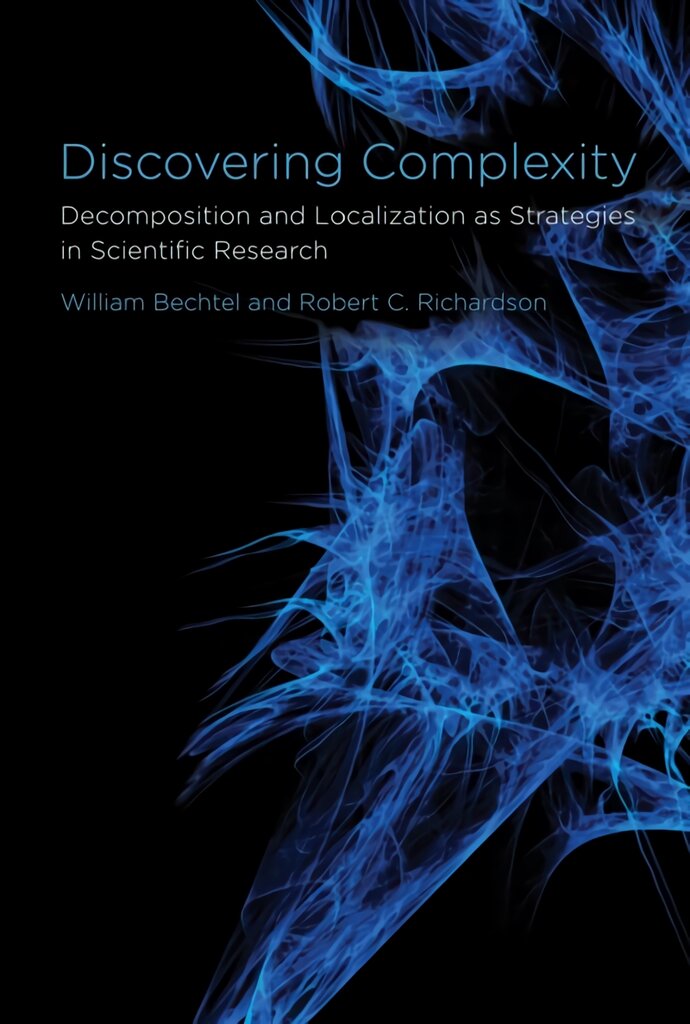-
Autoprekės
-
Santechnika, remontas, šildymas
- Oro drėkintuvai
- Meteorologinės stotelės, termometrai
- Oro sausintuvai, drėgmės surinkėjai
- Vonios ventiliatoriai
- Eteriniai aliejai difuzoriams
- Ventiliatoriai
- Oro reguliavimo įrangos priedai
- Oro valytuvai
- Kondicionieriai, šilumos siurbliai, rekuperatoriai
- Mechaniniai įrankiai
- Elektriniai įrankiai
- Įrankių dėžės, laikikliai
- Tvirtinimo detalės
- Sandėliavimo lentynos
- Surenkamos lentynų sistemos
- Buitinės kopėčios, rampos
- Sniego kastuvai, stūmikliai
- Sniego valytuvai
- Metalo detektoriai
- Platforminės svarstyklės
- Aukšto slėgio plovimo įranga
- Stebėjimo kameros
- Davikliai, jutikliai
- Apsaugos sistemos, valdikliai
- Durų skambučiai, akutės
- Dūmų, dujų detektoriai
- Signalizacijos
- Domofonai
- Apsaugos sistemų priedai
- Elektros jungikliai, rozetės
- LED juostos
- Elementų krovikliai
- Elementai
- Žibintuvėliai, prožektoriai
- Prailgintuvai
- Elektros lemputės
- Komponentai saulės jėgainėms
- Laikmačiai, termostatai
- Maitinimo šaltiniai
- Tekstiliniai kabeliai ir elektros kaladėlės
- Įmontuojami šviestuvai, LED panelės
-
Dovanos, dekoracijos, gėlės
- Kvepalai Jai
- Kosmetika Jai
- Aksesuarai moterims
- Mobilieji telefonai
- Belaidės ausinės
- Kvapų difuzoriai
- Dulkių siurbliai-robotai
- Kavos aparatai
- Išmanieji laikrodžiai, apyrankės
- Gruzdintuvės
- Namų kvapai
- Plaukų formavimo ir tiesinimo prietaisai
- Epiliatoriai
- Plaukų džiovintuvai
- Veido priežiūros prietaisai
- Elektriniai dantų šepetėliai
-
Vaikams ir kūdikiams
- Kūdikio priežiūrai
- Maitinimo priemonės
- Prekės mamoms
- Vaikiški vežimėliai ir jų priedai
- Autokėdutės ir jų priedai
- Maniežai vaikams
- Gultukai ir sūpynės
- Kūdikių ir vaikų maistas
- Nešioklės
- Antspaudai kūdikiams
- Vaikštynės
- Čiužiniai kūdikiams
- Sauskelnės
- Kūdikių lovytės
- Patalynė kūdikiams
- Kūdikio kraitelis
- Saugos varteliai, apsaugos
- Drabužiai kūdikiams
-
Kvepalai, kosmetika
- Kosmetinės, veidrodėliai
- Lūpų dažai, blizgiai, balzamai, vazelinai
- Manikiūro, pedikiūro priemonės
- Makiažo šepetėliai, kempinėlės
- Makiažo pagrindai, pudros
- Akių šešėliai, pieštukai, blakstienų tušai, serumai
- Nagų lakai, stiprintojai
- Priklijuojamos blakstienos, blakstienų rietikliai
- Antakių dažai, pieštukai
- Bronzantai, skaistalai
- Veido kremai
- Veido masažuokliai, valymo įrankiai
- Veido prausikliai, valikliai
- Veido kaukės, paakių kaukės
- Veido aliejai, serumai
- Paakių kremai, serumai
-
Baldai ir namų interjeras
- Virtuvės baldų priedai
- Virtuvinės spintelės
- Virtuvės ir valgomojo kėdės
- Virtuvės ir valgomojo stalai, staliukai
- Virtuvės baldų komplektai
- Valgomojo komplektai
- Virtuvės stalviršiai
- Virtuvės baldų kolekcijos
- Vonios komplektai
- Vonios spintelės
- Vonios veidrodžiai
- Vonios lentynos
- Vonios aksesuarai
- Vonios kambario baldų kolekcijos
- Vaikiškos lovos
- Vaikiški sėdmaišiai, foteliai, pufai
- Vaikiški čiužiniai
- Vaikiškos lentynos
- Vaiko kambario baldų komplektai
- Vaikiškos kėdutės ir staliukai
- Kūdikių lovytės
- Vaikiškos komodos
- Vaikiškos spintos
- Vaikiškos spintelės
- Vaikiški rašomieji stalai
- Vaikiškos mokyklinės kėdės
- Žaislų dėžės
- Vaikų kambario baldų kolekcijos
-
Buitinė technika ir elektronika
- Kavamalės
- Virduliai
- Kavos aparatai
- Vandens filtrai
- Gruzdintuvės
- Svarstyklės (virtuvinės)
- Trintuvai, smulkintuvai
- Pjaustyklės, peilių galąstuvai
- Išskirtiniai maisto gaminimo prietaisai
- Vaflinės, el. blynų keptuvės
- Plakikliai
- Sulčiaspaudės
- Kokteilinės
- Vakuumatoriai
- Sumuštinių keptuvės
- Griliai, marinatoriai
- Garų puodai, daugiafunkciai puodai
- Skrudintuvai
- Virtuviniai kombainai
- Daigyklos, lempos augalams
- Gazuoto vandens aparatai ir priedai
- Mėsmalės
- Vandens aparatai
- Vaisių džiovyklės
- Duonkepės
- Dulkių siurbliai
- Dulkių siurbliai-robotai
- Dulkių siurbliai-šluotos
- Plaunantys siurbliai
- Svarstyklės (buitinės)
- Garais valantys prietaisai, grindų valytuvai
- Langų valytuvai
- Akumuliatoriai dulkių siurbliams
- Dulkių siurblių priedai
- Meteorologinės stotelės, termometrai
- Plaukų formavimo ir tiesinimo prietaisai
- Masažuokliai
- Barzdaskutės
- Elektriniai dantų šepetėliai
- Manikiūro, pedikiūro aparatai
- Plaukų džiovintuvai
- Epiliatoriai
- Šilumos prekės
- Plaukų kirpimo mašinėlės
- Elektrinių dantų šepetėlių antgaliai
- Irigatoriai
- Kraujospūdžio matuokliai
- Veido priežiūros prietaisai
- Inhaliatoriai
- Masažinės vonelės
- Termometrai
- Ventiliatoriai
- Kondicionieriai, šilumos siurbliai, rekuperatoriai
- Šildytuvai
- Oro drėkintuvai
- Vandens šildytuvai
- Grindų ir veidrodžių šildymo kilimėliai
- Vonios ventiliatoriai
- Dūmų detektoriai
- Oro reguliavimo įrangos priedai
-
Kompiuterinė technika
- Korpusų priedai
- Vidiniai kietieji diskai (HDD, SSD, Hybrid)
- Operatyvioji atmintis (RAM)
- Korpusai
- Valdikliai
- Komponentų priedai
- Maitinimo šaltiniai (PSU)
- Kompiuterių ventiliatoriai
- Pagrindinės plokštės
- Vaizdo plokštės (GPU)
- Procesorių aušintuvai
- Termo pastos
- Optiniai įrenginiai
- Procesoriai (CPU)
- Aušinimas vandeniu - aksesuarai
- Vaizdo plokščių aušintuvai
- Aušinimas vandeniu - rinkiniai
- Garso plokštės
- TV imtuvai, FM, video plokštės
-
Mobilieji telefonai, Foto ir Video
- Telefono dėklai
- Apsauginės plėvelės telefonams
- Priedai telefonams
- Telefono laikikliai
- Mobilieji telefonai
- Krovikliai telefonams
- Laidai telefonams
- Atsarginiai maitinimo šaltiniai (power bank)
- Telefonų dalys ir įrankiai jų remontui
- Atminties kortelės telefonams
- Asmenukių lazdos (selfie sticks)
- Akumuliatoriai telefonams
- Laisvų rankų įranga
- Ausinės
- Priedai fotoaparatams
- Fotografijos apšvietimo įranga
- Skaitmeniniai fotoaparatai
- Atminties kortelės fotoaparatams, kameroms
- Dėklai, krepšiai fotoaparatams ir objektyvams
- Momentiniai fotoaparatai
- Fotoaparatų krovikliai
- Fotoaparato stovai
- Akumuliatoriai fotoaparatams
- Objektyvai
- Filtrai objektyvams
- Įkraunami elementai
-
Apranga, avalynė, aksesuarai
-
Sportas, laisvalaikis, turizmas
- Turistinis inventorius
- Gertuvės
- Turistinės ir kelioninės kuprinės
- Palapinės
- Alpinizmo įranga
- Turistiniai čiužiniai ir kilimėliai
- Pripučiami čiužiniai ir baldai
- Miegmaišiai
- Turistinio inventoriaus, drabužių ir avalynės priežiūros priemonės
- Turistiniai baldai
- Biotualetai
- Autoturizmo reikmenys
- Priemonės nuo uodų
- Gimnastikos ir fitneso prekės
- Kuprinės ir krepšiai
- Masažo reikmenys
- Futbolas
- Vandens sportas
- Rakečių sportas
- Įtvarai
- Krepšinis
- Kovos menai
- Ėjimo lazdos
- Golfas
- Žingsniamačiai, chronometrai, širdies ritmo monitoriai
- Smiginis
- Tinklinis
- Diskgolfas
- Baletas ir meninė gimnastika
- Kamuolių pompos ir adatos
- Rankinis
- Beisbolas
- Jojimo prekės
- Grindų ir žolės riedulys
- Dviračiai, riedučiai, riedlentės
- Svoriai, svarmenys, grifai
- Žaidimų stalai
- Treniruokliai, treniruočių įranga
- Kamuoliai
- Aminorūgštys
- Angliavandeniai
- Baltymai
- Batonėliai
- Kiti papildai ir preparatai
- Energetikai
- Funkcinis maistas
- Glutaminas
- Kreatinas
- L-karnitinas
- Papildai ir preparatai masei auginti
- Papildai ir preparatai sąnariams
- Produktai atsistatymui
- Riebalų degintojai
- Papildai ir preparatai lieknėjimui
- Testosterono skatintojai
- Vitaminai
-
Virtuvės, buities, apyvokos prekės
- Virtuvės įrankiai
- Kepimo indai, popierius, formos
- Taurės, puodeliai, ąsočiai
- Indai, lėkštės, pietų servizai
- Maisto saugojimo indai
- Peiliai ir jų priedai
- Puodai, greitpuodžiai
- Keptuvės
- Termosai, termopuodeliai
- Stalo įrankiai
- Kavinukai, virduliai
- Prieskonių indeliai, malūnėliai
- Pjaustymo lentelės
- Prieskoniai, prieskonių rinkiniai
- Konservavimo indai ir priedai
- Gertuvės, termo puodeliai
- Vienkartiniai, teminiai indai
- Vandens filtrai
-
Gyvūnų prekės
- Žaislai šunims
- Transportavimo narvai, krepšiai
- Dubenėliai, dėžės maistui
- Drabužiai šunims
- Guoliai, pagalvėlės
- Sausas maistas šunims
- Priežiūros priemonės gyvūnams
- Kelioniniai reikmenys
- Pavadėliai šunims
- Skanėstai šunims
- Antkakliai, petnešos šunims
- Konservai šunims
- Vitaminai, papildai, antiparazitinės priemonės šunims
- Kosmetinės priemonės gyvūnams
- Dresūros priemonės šunims
- Žaislai katėms
- Draskyklės
- Sausas maistas katėms
- Kačių tualetai
- Konservai katėms
- Kraikas katėms
- Skanėstai katėms
- Vitaminai, papildai, antiparazitinės priemonės katėms
- Pavadėliai, antkakliai, petnešos katėms
- Guoliai, pagalvėlės
- Transportavimo narvai, krepšiai
- Dubenėliai, dėžės maistui
- Kosmetinės priemonės katėms
- Priežiūros priemonės katėms
-
Sodo prekės
- Sodo technikos dalys
- Lapų siurbliai, šakų smulkintuvai, trinkelių valytuvai
- Vejapjovės, žoliapjovės
- Trimeriai (žoliapjovės), krūmapjovės
- Drėgmės, temperatūros, pH, ORP matuokliai
- Gyvatvorių, žolės žirklės
- Karučiai
- Žoliapjovės, vejos robotai
- Malkų skaldyklės
- Aeratoriai, kultivatoriai
- Sodo traktoriukai
- Žemės grąžtai
- Šlavimo mašinos
-
Apsauginės, dezinfekcinės, medicininės prekės
- Kaukės, respiratoriai
- Apsauginės sienelės, dezinfekcinės stotelės
- Dezinfekcinis skystis
- Vienkartinės pirštinės
- Dezinfekciniai valikliai
- Apsauginiai skydeliai ir akiniai
-
Knygos
-
n18.lt specializuota parduotuvė
n18.lt specializuota parduotuvė suaugusiems
Prekes suaugusiems specializuotoje internetinėje parduotuvėje n18.lt gali matyti tik lankytojai, kurie yra ne jaunesni nei 18 metų. Šioje svetainėje skleidžiama informacija gali daryti neigiamą poveikį asmenims iki 18 metų.Peržiūrėti prekes -
Išmanūs namai
- Maisto prekės
- Išparduotuvė
-
Biurui, mokyklai, kūrybai
Rodyti daugiau kategorijų
 Naujametinis sandėlio valymas, neįtikėtinos sandėlio prekių kainos bei *greitas pristatymas!
Naujametinis sandėlio valymas, neįtikėtinos sandėlio prekių kainos bei *greitas pristatymas! 





